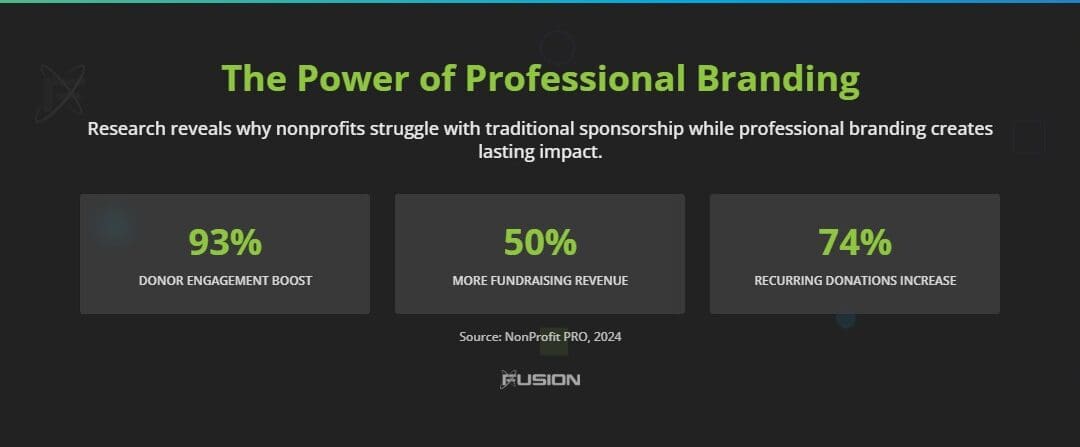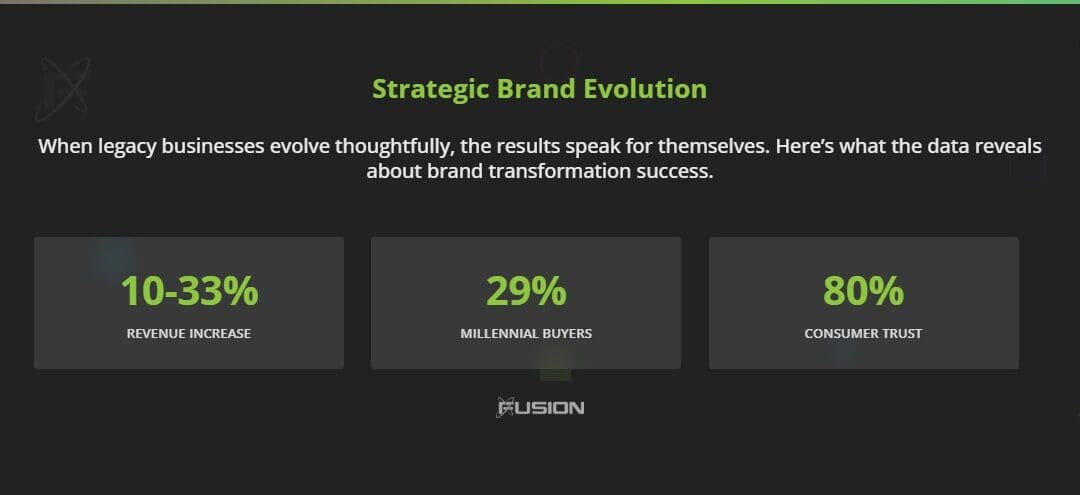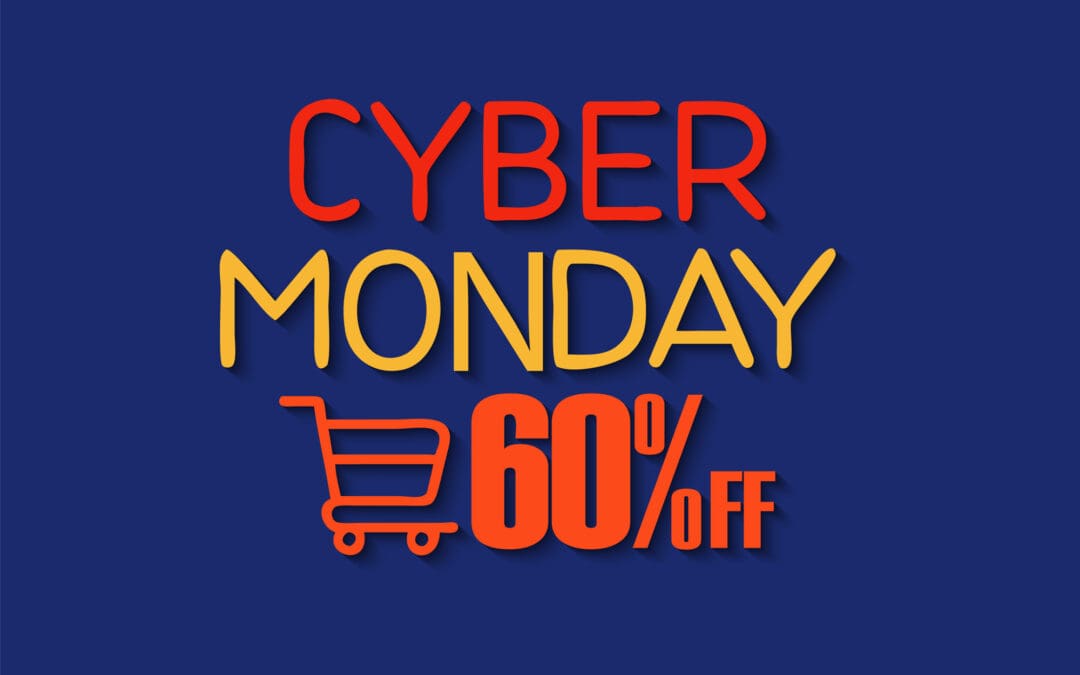Welcome to the business world, where the terms “startup” and “small business” are often tossed around like interchangeable pieces of a puzzle.
But are they really the same?
Today, we’re going to uncover the nuances and fundamental differences that define these two entities. Understanding the distinction is crucial, especially for small business owners and startup founders navigating their unique paths to success.
At Fusion Marketing, we know a thing or two about these worlds; our journey began with a single health food store, evolving into a powerhouse of marketing innovation tailored for small businesses and startups alike.
Whether you’re in the tech industry or own a local market, knowing how to classify your venture could shape your business model and growth strategy. If you’re considering tapping into venture capitalists for significant investment or are a small business owner looking to redefine success, this guide will help clarify why these differences matter.
Let’s get to it!

Startup vs. Small Business: Unraveling the Key Differences
So, you want to know the difference between a startup vs. small business?
Well, let me fill you in!
Exploring the Dynamics of a Startup
A startup is typically a new company at the dawn of its journey, often characterized by a scalable business model designed to grow fast and capture substantial market share quickly.
In layman’s terms, startups are highly innovative, disruptive to the scene, and have significant potential for growth. The main goal is to reach a large market share quickly while generating substantial revenue in a short period.
To understand the dynamics of a startup better, let’s look at some key characteristics that define this type of business:
- Innovative: Startups often offer unique products or services that disrupt an established market. They aim to solve problems with new solutions by leveraging technology and creativity.
- Fast-paced: The pace of growth for startups is typically rapid; they are always on the lookout for ways to scale their operations quickly and expand into new markets.
- Risk-taking: Startups involve risk-taking, whether investing in a new idea or entering a competitive market. Founders must be willing to take calculated risks to achieve their goals.
- Funding: Startups often rely on external funding, such as venture capital or angel investments, to support their growth strategies. This type of financing can bring significant resources and expertise to the table but also requires giving up some control over the company.
This growth-oriented mentality is especially prominent in hotspots like Silicon Valley, where innovation meets opportunity.
Unveiling the Core of the Small Business
Delving into the core of small businesses reveals their focus on enduring success and community impact. Unlike the rapid pace of startups, these businesses aim to serve a reliable local or niche market with consistency and dedication.
Here’s what sets them apart:
- Community-Oriented: Small businesses often emphasize building strong ties within their local communities, offering familiar products or services that cater to customer needs while fostering loyalty.
Stable and Sustainable Growth: Rather than chasing meteoric growth, these businesses invest in gradual, sustainable expansion. They focus on quality over quantity, ensuring they grow in harmony with their capabilities. - Customer-Centric Approach: A small business builds lasting relationships by prioritizing dedicated customer service, creating a loyal customer base that values personalized experiences.
- Independence: Unlike startups that often rely on external funding, the owners of a small business typically fund their operations independently. They retain full control over their business decisions and strategy.
While these are general characteristics, it’s not uncommon to see overlaps between a startup and a small business. Some startups may eventually evolve into small businesses as they mature and stabilize, while a small business may decide to take on more innovative approaches to grow.
Explosive Growth vs. Reliable Roots: Understanding Business Journeys
When it comes to the difference between a startup and a small business, the vibes are different from the start.
Startups are like the sprinters of the business world, ready to shake things up and redefine industries with groundbreaking ideas.They’re laser-focused on growing quickly and often have their eyes on the big prize—an initial public offering. Startups are all about raising money from venture capitalists and angel investors who see potential in their vision and are willing to bet on a successful startup.
On the flip side, small business owners usually prioritize steady, sustainable growth.They’re more like marathon runners, pacing themselves to offer quality service to their loyal customers. These entrepreneurs build an impactful business model centered around their local community, making connections and ensuring their own business thrives year after year.
The real difference here is about pace and ambition. Most startups aim to take the global market by storm with rapid expansion and development, often sharing equity with investors to make it happen. Small businesses, meanwhile, prefer to keep control in-house, focusing on customer satisfaction and letting their business grow naturally over time.
Both paths have their charm and significance. Whether it’s startups making waves or a small business owner creating a stable future for themselves and their employees, each plays a vital role in shaping our current market landscape.

Demystifying Business Models and Growth Goals
Alright, let’s talk about business differences in simpler terms.
Business Models
Startups are all about aiming big from the get-go. They’re like adventurers ready to shake things up with fresh ideas that could change everything.
Their secret? Scalable business models that grow fast and often have an eye on the world stage. They’ve got investors backing them to make a splash. These folks share a piece of their company pie, hoping for big returns down the road.
Now, if we switch gears to the average small business, it’s all about the long game. They start with tried-and-true approaches, serving familiar faces in their community. Small biz owners are the ones reinvesting their earnings back into the business to keep it rock-solid. Instead of looking for rapid cash infusions from outside, they often run the show solo, making sure everything aligns with their values and community vibes.
Growth Plans
When it comes to how they wanna grow, startups are in for the speed—you know, rapid scaling and grabbing hefty market chunks. That means they’re ready to twist and turn with market trends to stay in the race.
Meanwhile, small businesses take it slow and steady—think tortoise versus hare.
Their mission? Consistently good service with a personal touch, winning over loyal customers one smile at a time.
Whether it’s the bold, trailblazing path of startups or the steady, community-oriented journey of small businesses, both add their own flair to the economic tapestry, rewriting industries and charting the course for future business adventures.

Fueling Growth: Cash and Investment Moves
Let’s break down how startups and small businesses handle their money game.
Head In the Clouds
Startups are the big dreamers looking to make splashy market entrances, so they buddy up with angel investors or venture capitalists. These are the folks who toss big bucks their way in exchange for a little piece of the action, betting that the startup will zoom to the top and bring them a nice payday.
With piles of cash, startups can quickly shake things up and keep up with fast-paced industries.
Feet On the Ground
On the other hand, small business owners play it close to home. They prefer personal savings, support from small business administration programs, or good ol’ loans to get rolling. Unlike their startup pals, these businesses focus on serving their communities and making sure their tribe is taken care of.
For them, it’s about stable, steady growth, putting earnings back into the biz to keep everything running smooth and build up loyalty.
So, whether it’s attracting big investors to fuel innovative shifts or ensuring the road ahead is stable and lined with happy customers, how businesses choose to fund themselves says a lot about their vibe and goals. Both play their part in painting the bigger economic picture, paving the way for future business tales.

Mapping Out the Legal Maze and Target Audience
When choosing a legal structure, a startup and a small business take two completely different routes, influenced by their end game and growth intent.
What is Incorporation?
Incorporation is the process of legally creating a company or corporation. The company becomes a separate legal entity, distinct from its owners, with certain rights and responsibilities. Incorporation often helps startups grow quickly, supporting their goals of creating innovative products that capture big market shares.
A startup founder will often opt for incorporation, forming corporations that can raise money quickly and easily and handle large investments. This decision allows them to share equity with investors looking for a slice of potential profits that come with a successful idea.
What is a Sole Proprietorship?
Small business owners, on the other hand, frequently lean towards sole proprietorships or limited liability companies (LLCs). These structures are simpler as the business owner is personally liable for any debts or legal issues that arise, but it allows them tighter control over their business model, aligning with their local emphasis and steady pace.
Staying close to their roots ensures they can reach profitability sooner and focus on community needs rather than dealing with complex investor demands. Many small business owners rely on resources from the Small Business Administration and local funding, ensuring they build a firm foundation without surrendering control.
Market Focus
Startups usually set their sights on vast industries and national or even global market domination. Their approach is all about scale, using capital injections to tap into wider audiences and disrupt existing business models and norms. Small businesses, however, concentrate on their neighborhoods, developing genuine relationships and serving their loyal clientele. This local focus means they’ve got a consistent revenue stream that lines up with their growth ambition.
Whether it’s carving out a stable niche in the local scene or running full throttle towards industry leadership, the differences between a startup and a small business are pretty defined. Each path offers unique challenges and rewards, all contributing to a diverse economic landscape filled with exciting opportunities.

Profits, Perils, and Payouts: Diving Into Risk and Reward
Let’s unpack the high stakes of risk and return regarding startups versus small businesses.
Go Big Or Go Big
For startups, it’s all about that “dream big or go home” mentality. Fueled by hefty capital and eager to chase the next big innovation, startup founders embrace high-risk ventures in hopes of landing those jaw-dropping returns.
They’re the adrenaline junkies of the business world, investing lots of effort and funding into rapid growth, aiming to disrupt entire industries and snatch larger market shares before turning a big profit. Their model is built around high stakes and long-term gains, capitalizing on a potentially explosive end goal that shapes their company’s journey.
Easy Does It
Meanwhile, small businesses tend to prefer a smoother ride, focusing on stability and bringing in those dollars sooner rather than later. These entrepreneurs juggle less risk, often relying on personal savings or smaller loans to get started.
Small businesses thrive on delivering dependable service and forging strong neighborhood connections, making the immediate bottom line more of a reality than a distant dream. To them, the difference matters—keeping it local and maintaining steady cash flow ensures they hit profitability faster.
At the heart of it, the difference between a startup and a small business is as much about mindset as it is about strategy. Each has its own approach toward employees, development, and equity.
Startups dive deep into innovation, pumping in capital with ambitious visions far off in the horizon, while small businesses nurture their local roots, prioritizing present-day profits and risk management. Both paths bring unique contributions to the business ecosystem, each with its own brand of excitement and rewards.

Success: The Ultimate Destination
In the thrilling journey of startups and small businesses, success paints a very different picture depending on which road you travel.
0 To 60
Startups are like the flashy sports cars on the business highway—they’re all about scaling rapidly, locking in those epic initial public offerings (IPOs), and becoming the next big thing.
For startup founders, success means transforming their company into an industry heavyweight, all fueled by strategic decisions and hefty injections of capital. Here, the keyword is expansion: from employee growth to innovative product lines, success is woven into how well they can create disruptions and claim large slices of the market pie.
Slow and Steady
On the flip side, small business success is rooted in a different soil. For owners of a small business, it’s all about stability and serving their beloved community. They cherish the idea of maintaining the status quo, where consistency and local rapport trump explosive growth.
Success in this world is defined by solid, regular profits, fostering customer loyalty, and ensuring that employees are well catered to, all while keeping their business model simple and effective. The difference matters as they focus on sustaining a reliable and steady income, creating a nurturing atmosphere where homeowners trust their neighborhood café or corner store as a dependable staple.
The Reward
The end goal for each path is unique yet equally rewarding. Startups thrive on the adrenaline of blitzscaling and breakthrough achievements, often eyeing acquisition or massive expansion as the crown jewels of their success journey. Meanwhile, small businesses value a legacy of dependable service, becoming cultural cornerstones in their communities.
Whether it’s gunning for international acclaim or being the go-to spot in the local scene, both startups and small businesses contribute to a rich tapestry of economic diversity that propels innovation and nurtures community spirit alike.

Fusion Marketing Crafts Success Stories for Small Businesses
The difference between a startup vs. small business matters. It makes a difference in what defines your company culture and what you prioritize as a business owner.
At Fusion, we thrive on empowering small businesses to define success on their terms, creating a lasting impact in their communities rather than chasing the whirlwind of startup culture. We embrace the vibrancy and spirit of a small business. We love to be a part of prioritizing their growth and helping them connect with a loyal customer base. Our passion lies in working closely with them, understanding that their goals revolve around local rapport, steady profit, and personal touch.
Think of us as your friendly neighborhood team, right here in Eastpointe, MI, eager to help you through every step of your journey toward becoming a beloved community cornerstone.
Ready to take your small business to the next level?
Let’s join forces to turn your company’s vision into reality, using creative approaches that showcase your unique edge. Get in touch so we can create something extraordinary together.





